Please fill out the following information, and RRFC Admissions will contact you to discuss our program offerings:
Issue #209
by Liya Swift
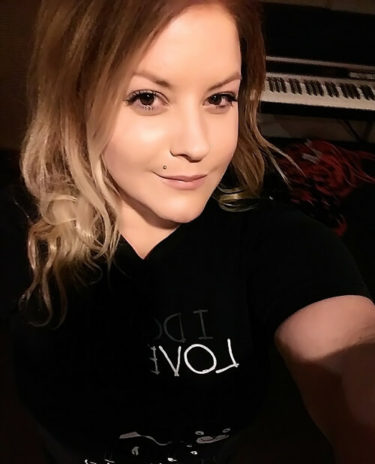
Recording Connection grad April Edwards
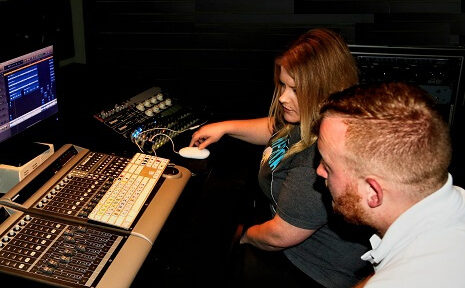
April Edwards and artist Pistol
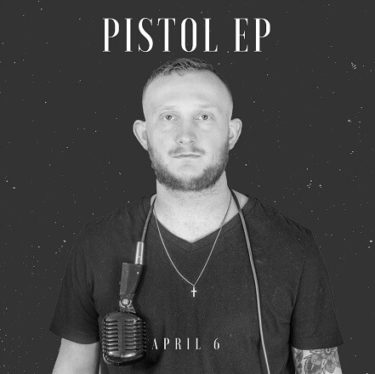 For now, showing up for the artists and tirelessly focusing on making great sounding music is April’s path and purpose. Even though it has its challenges, it’s work she knows she was meant to do:
“I push people, I push artists, especially ones like Eric Combs that I see and know are going to go somewhere…If I have to spend a month on mixing something because I just can’t get the vocals right, I’ll do it. I don’t let that stuff go out there half-done…I just like being involved in the creative process and seeing their faces when they hear the final masters, and being like, ‘Yeah, I know. It’s all good. I did that. I made you sound great.”
For now, showing up for the artists and tirelessly focusing on making great sounding music is April’s path and purpose. Even though it has its challenges, it’s work she knows she was meant to do:
“I push people, I push artists, especially ones like Eric Combs that I see and know are going to go somewhere…If I have to spend a month on mixing something because I just can’t get the vocals right, I’ll do it. I don’t let that stuff go out there half-done…I just like being involved in the creative process and seeing their faces when they hear the final masters, and being like, ‘Yeah, I know. It’s all good. I did that. I made you sound great.”
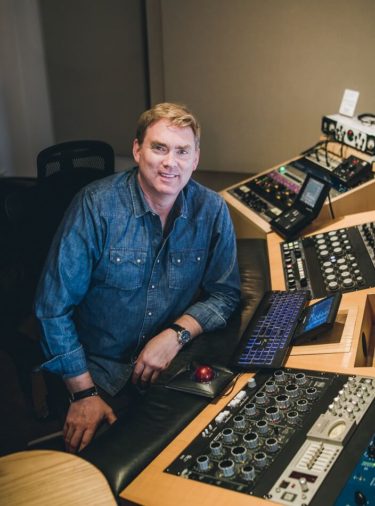
Recording Connection mentor Mark Christensen
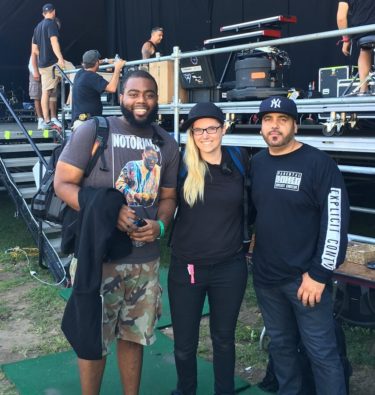
RC grad Alexa Cooper with A$AP Rocky’s FOH Manager and DJ
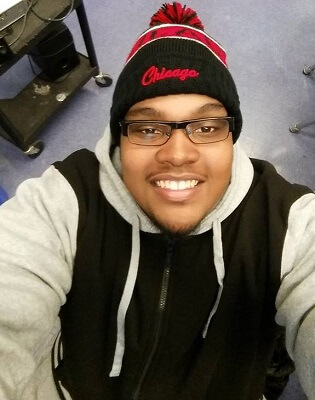 Since he started his externship with mentor Patrick Wimp at Digital Hydra, life is moving quickly for Film Connection student Derrick Turnage (Chicago, IL):
“These past few weeks have been really busy and awesome. I had a chance to go to WGN studio and help shoot a promo video with my mentor. I also met the entire cast of WGN news as well as the director and producers that treated us like family. I met another great Director/DP who accepted me to shadow him and is hilarious with his jokes and personality. Lastly, I met some grips, gaffers, and saw firsthand what a 1st AC does, all while also working on my own project out of town… I am truly happy right now!”
Since he started his externship with mentor Patrick Wimp at Digital Hydra, life is moving quickly for Film Connection student Derrick Turnage (Chicago, IL):
“These past few weeks have been really busy and awesome. I had a chance to go to WGN studio and help shoot a promo video with my mentor. I also met the entire cast of WGN news as well as the director and producers that treated us like family. I met another great Director/DP who accepted me to shadow him and is hilarious with his jokes and personality. Lastly, I met some grips, gaffers, and saw firsthand what a 1st AC does, all while also working on my own project out of town… I am truly happy right now!”
 At Mix Master Pro Studios in (Burke, VI) Recording Connection student Destiny Williams is enjoying the time she’s spending sitting in on her mentor Rob Sanchez’ recording sessions where she’s connecting with fellow artists and geeking out on the gear:
“Rob and I had a late night session from 11 ‘til about 3am. Had the pleasure of meeting a dope DJ named Will Stylez and a super talented rapper named Benz…
We mixed in Pro Tools HDX which was amazing. Virtually, it allows you to rack up on multiple plugins and processors without using any CPU. Good riddance latency issues! We used FabFilter EQ for virtually every EQ’ing process…We got to play with compression, of course, using the UAD LA – 2A. A beautiful beast it is. Very clean but also adds in some shimmer to enhance harmonics just a bit more than other 2A’s that I’ve previously used.”
At Mix Master Pro Studios in (Burke, VI) Recording Connection student Destiny Williams is enjoying the time she’s spending sitting in on her mentor Rob Sanchez’ recording sessions where she’s connecting with fellow artists and geeking out on the gear:
“Rob and I had a late night session from 11 ‘til about 3am. Had the pleasure of meeting a dope DJ named Will Stylez and a super talented rapper named Benz…
We mixed in Pro Tools HDX which was amazing. Virtually, it allows you to rack up on multiple plugins and processors without using any CPU. Good riddance latency issues! We used FabFilter EQ for virtually every EQ’ing process…We got to play with compression, of course, using the UAD LA – 2A. A beautiful beast it is. Very clean but also adds in some shimmer to enhance harmonics just a bit more than other 2A’s that I’ve previously used.”
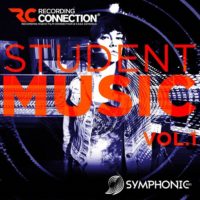 Heard our Student Music Mixtape yet? In partnership with Symphonic Distribution, we’re excited to help our students get their music out to the world!
The Recording Connection is now offering this great opportunity for our students to broaden their understanding of the new role digital distribution companies like Symphonic Distribution can play in helping release their tracks and propel their careers forward!
Heard our Student Music Mixtape yet? In partnership with Symphonic Distribution, we’re excited to help our students get their music out to the world!
The Recording Connection is now offering this great opportunity for our students to broaden their understanding of the new role digital distribution companies like Symphonic Distribution can play in helping release their tracks and propel their careers forward!

RRFC is education upgraded for the 21st century.
Get the latest career advice, insider production tips, and more!
Please fill out the following information, and RRFC Admissions will contact you to discuss our program offerings:
Stay in the Loop: Subscribe for RRFC news & updates!
© 2025 Recording Radio Film Connection & CASA Schools. All Rights Reserved.


